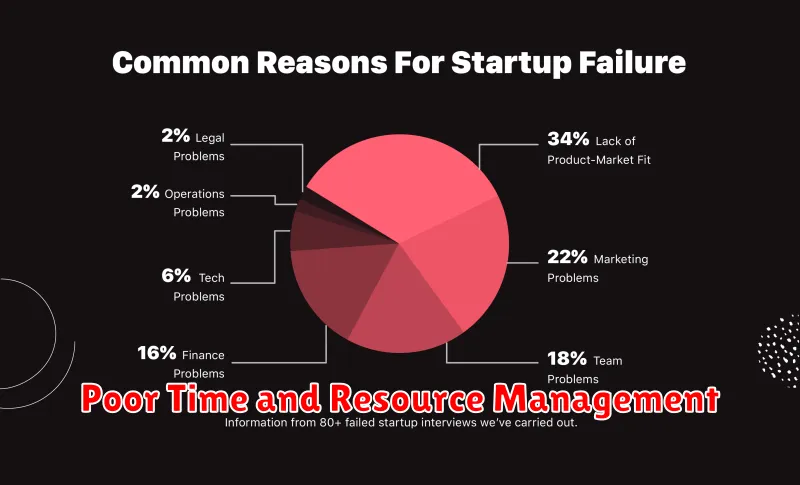Launching a new business is exciting, but also fraught with potential pitfalls. First-time entrepreneurs often make crucial mistakes that can derail their startup before it even gains traction. This article will highlight common business mistakes that aspiring entrepreneurs should avoid, focusing on crucial areas like financial planning, marketing strategies, and team management to help you build a successful and sustainable enterprise. We’ll explore practical tips and strategies to navigate the challenges of entrepreneurship and increase your chances of business success.
Skipping Market Research and Planning

One of the most critical mistakes first-time entrepreneurs make is neglecting market research and planning. This oversight can lead to significant financial losses and ultimately, business failure.
Thorough market research helps identify your target audience, understand their needs and preferences, and assess the competition. Without this crucial information, you risk developing a product or service nobody wants or entering a saturated market with no clear competitive advantage.
A comprehensive business plan, informed by market research, provides a roadmap for your venture. It outlines your business model, marketing strategy, and financial projections, enabling you to make informed decisions and track your progress. Skipping this step leaves you operating without direction and increases the likelihood of unforeseen challenges.
In short, investing time and resources in market research and detailed planning is not an optional extra; it’s a fundamental necessity for entrepreneurial success. It provides the foundation for making smart decisions and increases your chances of building a thriving and sustainable business.
Underestimating Startup Costs
One of the most common pitfalls for first-time entrepreneurs is underestimating startup costs. Many new businesses fail because they haven’t accurately accounted for all the expenses involved in launching and sustaining their operation.
Beyond the obvious costs like rent, equipment, and inventory, entrepreneurs often overlook crucial expenses such as legal fees, marketing and advertising, insurance, permits and licenses, and initial operating capital. Thorough market research and detailed financial planning are essential to avoid this mistake.
Accurate budgeting requires a realistic assessment of all potential expenses, including contingencies for unexpected costs. Failing to adequately fund the business from the outset can lead to financial instability, hindering growth and increasing the risk of failure. Seeking professional advice from accountants and business mentors can greatly assist in developing a comprehensive and accurate budget.
It’s crucial to create a comprehensive business plan that includes a detailed financial projection. This will help to secure funding, manage cash flow effectively, and make informed decisions about resource allocation throughout the life cycle of the business.
Lack of Clear Branding and Messaging
A clear brand and consistent messaging are crucial for attracting and retaining customers. First-time entrepreneurs often underestimate this, resulting in confusion among their target audience. Without a defined brand identity, including a unique value proposition and a consistent voice across all platforms, businesses struggle to stand out from the competition and build customer loyalty.
Inconsistent messaging, whether in marketing materials, website copy, or customer interactions, creates a fragmented and unprofessional image. This can lead to a lack of trust and hinder growth. Developing a strong brand identity requires careful consideration of your target market, your competitive landscape, and your business’s unique strengths. This involves crafting a compelling narrative that resonates with your audience and clearly communicates your value proposition.
Investing time and resources in developing a cohesive brand strategy, including visual elements such as logos and color palettes, as well as a defined brand voice and tone, is vital for long-term success. Without a clear brand and messaging strategy, new businesses risk getting lost in the noise and failing to connect with their ideal customers.
Trying to Do Everything Alone
One of the biggest mistakes first-time entrepreneurs make is trying to do everything themselves. This is a recipe for burnout and inefficiency. Delegation is crucial for growth. While you may feel the need to control every aspect initially, outsourcing or hiring help, even on a part-time basis, can free up your time and energy to focus on the strategic aspects of your business.
Attempting to handle marketing, sales, finance, operations, and customer service all simultaneously is unsustainable. It prevents you from developing expertise in any single area, hindering your ability to make informed decisions and build a truly successful business. Focusing your efforts on your core competencies and delegating the rest is key to long-term success.
Remember, building a strong team is not a sign of weakness; it’s a mark of a smart and effective leader. By effectively delegating tasks, entrepreneurs can focus their energy where it matters most, driving business growth and ensuring long-term sustainability.
Ignoring Customer Feedback and Reviews
Ignoring customer feedback and reviews is a critical mistake for first-time entrepreneurs. Customer opinions are invaluable for understanding market needs, identifying product flaws, and improving customer satisfaction. Actively seeking and responding to feedback demonstrates a commitment to quality and customer service, fostering loyalty and positive word-of-mouth marketing.
Negative reviews, while unpleasant, provide crucial insights into areas needing immediate improvement. Dismissing them can lead to lost sales and damage a company’s reputation. Conversely, positive reviews offer validation and suggest successful strategies to replicate and build upon.
By actively engaging with customer feedback, entrepreneurs can refine their products or services, enhance their marketing efforts, and build a stronger relationship with their target audience. This proactive approach is essential for long-term business success.
Poor Time and Resource Management

Effective time and resource management is crucial for entrepreneurial success. First-time entrepreneurs often struggle with this, leading to missed deadlines, inefficient operations, and ultimately, financial difficulties.
A common mistake is failing to prioritize tasks. Without a clear understanding of what needs immediate attention and what can be delegated or postponed, entrepreneurs can become overwhelmed and unproductive. This often manifests as working long hours without achieving significant results.
Another critical aspect is budgeting and resource allocation. New businesses often underestimate the costs involved, leading to insufficient funds for crucial areas like marketing or hiring. Careful planning and consistent monitoring of expenses are essential to avoid running out of resources before achieving profitability.
Finally, learning to delegate is paramount. Entrepreneurs frequently try to do everything themselves, limiting growth and increasing stress levels. Recognizing which tasks can be effectively outsourced or assigned to team members allows for better focus on strategic activities and improved overall efficiency.
Neglecting Online Presence and Marketing
In today’s digital age, a strong online presence is not merely beneficial; it’s essential for business survival. Neglecting this aspect is a critical mistake first-time entrepreneurs frequently make.
A website acts as your digital storefront, showcasing products or services and providing crucial information. Social media marketing allows direct engagement with potential customers, building brand awareness and fostering loyalty. Search engine optimization (SEO) ensures your business appears in relevant online searches, driving organic traffic to your website.
Ignoring these crucial elements means missing out on a vast potential customer base. Effective online marketing strategies are vital for reaching your target audience, generating leads, and ultimately driving sales. Failing to invest time and resources in building a robust online presence severely limits your business’s growth potential.
Therefore, developing a comprehensive online marketing plan from the outset is crucial. This includes defining your target audience, choosing appropriate marketing channels, creating engaging content, and consistently monitoring and adapting your strategy.
How to Learn from and Recover After a Mistake
Making mistakes is inevitable, especially for first-time entrepreneurs. The key is not to avoid mistakes entirely, but to learn from them and recover effectively. Begin by honestly assessing the situation. Identify what went wrong, the contributing factors, and the consequences. This requires self-reflection and possibly input from trusted advisors.
Once you’ve analyzed the situation, focus on learning. What valuable lessons can you extract? What could you have done differently? Document these insights to prevent repeating the same errors. This process of self-improvement is crucial for future success.
The recovery phase involves taking corrective actions. This might involve adjusting your business strategy, seeking additional funding, or improving internal processes. Be decisive and implement the necessary changes promptly. Communicate transparently with your team and stakeholders, showing accountability and a commitment to improvement.
Finally, cultivate resilience. Entrepreneurship is challenging, and setbacks are part of the journey. Learn to view mistakes as opportunities for growth, and maintain a positive attitude even during difficult times. Surround yourself with a supportive network that can offer guidance and encouragement.

